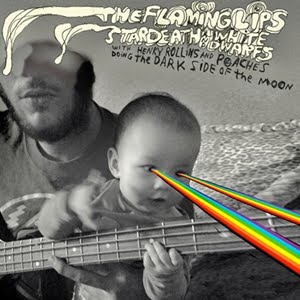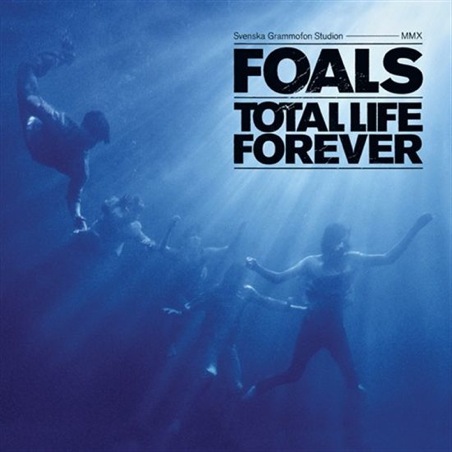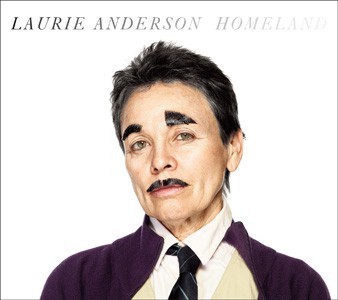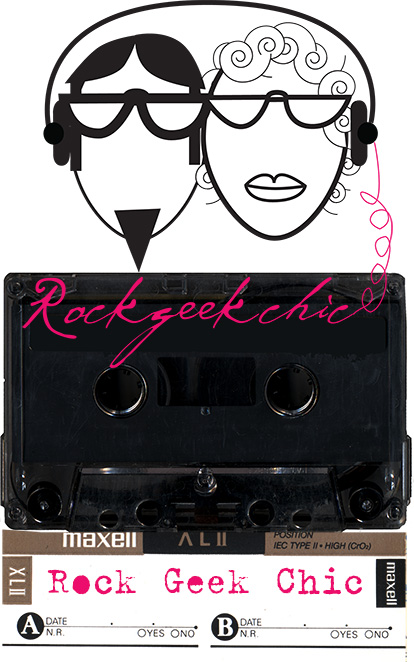One Minute Reviews
William Gillespie

The Flaming Lips And Stardeath And White Dwarfs With Henry Rollins And Peaches Doing Dark Side Of The Moon. Warner Brothers.
Bad! Sick! Revisionist rock! Sweaty, slimy, and crunchy. They shouldn’t have done this. But something had to be done! About the stupendously over-rated Gen X teenage nightmare Dark Side of the Moon, an album that has held sway over every tortured middle class male’s emotional life since 1974. 1973. Whatever. So why not the Flaming Lips, whose qualifications are limited to being as drug-addled as the Floyd were thought to be, and Henry Rollins, who has no qualifications, and even Peaches, who has better music to make. I don’t know White Dwarves, but I agree with them (and Pink Floyd) that there are too many bands named after the color “black.” Right, Henry? I hate this album less than the original! It is not as good, so let it fall like acid rain on the Floyd’s pyramid. I am liberated, freed from the chains of Roger Water’s seductive narcissism! I have a new love/hate relationship with Dark Side of the Moon! And now it’s finally on bile-green vinyl. Oh yes oh yes. Fuck you, Warner Brothers, please remind Henry Rollins that he used to be DIY, but thanks for the record!

Foals. Total Life Together. SubPop.
Nice. Soothing, flatly dramatic, synth-driven pop. Like the record skipped back to 1982, these repetitive electronic songs about the songwriter’s soul are presented with a refreshing absence of irony, rising above the past three decades’ tumult of fashion and counter-fashion. A bassline wanders through an electronic jungle of dripping textures. This is not music I look to for startling lyrics, or to shatter the ice of complacency, or to subvert commercial paradigms. No revolutions here. Instead, I celebrate its inevitability. It's a watercolor wash over life’s walls' imperfections. It’s good. Like prom without the awkwardness.

Laurie Anderson. Homeland. Nonesuch.
Laurie Anderson is inarguably the most important artist currently working in the Cleveland, Ohio, multimedia performance art scene. Her latest album features a bevy of Cleveland greats, including virtuoso classical guitarist and humanitarian Lou Reed, and the modest saxophone session man John Zorn. It is nothing short of remarkable that the under-rated, misunderstood, vilified city of Cleveland could boast talent comparable to that of major coastal cities. Indeed, Anderson’s work has been studiously ignored by The Los Angeles Times, the New York Times, The Boston Globe, The New Yorker, and even The London Times and Guardian. Could it be that her warmth, her homespun femininity, her low-tech, down-to-earth midwestern sensibilities just don’t register with the tastemakers of culturally dominant cities? Or is the problem more dire: that the Manhattan elite must ignore the world across the poisonous Hudson, and continuously regurgitate the same flat, dull, precious, pretentious, overblown, craftless, “conceptual,” cold, dry, flat, waxen, posturing, phony figures decade after decade, overlooking the amazing strides forward taken and aesthetic boundaries forever shattered by cities like Cleveland?
I swear this CD looks pretty good. DVD and all. I’m probably going to take the shrinkwrap off it this weekend, and play it while I mow the lawn. [*]
AS USUAL, MY GOOD-HEARTED REVIEW GENERATED SOME NEGATIVE COMMENTS, THIS TIME FROM A SAD MIDWESTERNER WHO CLINGS TO A COUPLE YEARS SPENT IN 1980S NEWYORK AS HIS BADGE TO CRED. SO, HERE'S ADDITIONAL CLARIFICATION ON THE SUBTEXT IN THE REVIEW ABOVE.
If I were going to write conventional reviews of rock albums, I wouldn't. The cliches of the form are entrenched, and rock is so commercial that a normal review can rarely rise above the level of copy to criticism. More to the point in this case, I've noticed that when review copies of CDs are sent out, they are plastered with ad copy, including RIYL tags listing whatever bands are in vogue at the moment. These early blurbs and descriptions have a tendency to be recycled by all subsequent reviewers. The label seeds its album's reviews, and the reviewers go along with it.
So I sat down, looking forward to listening to and writing about the new Laurie Anderson CD, and before I could even get to the shrinkwrap, I was steamrollered by a cover letter of drooling praise from every major New York (and L.A. and London) print periodical. It seems as though a lot of highly-placed people have conspired to make sure nobody thinks about this album.
I have been following Anderson's career off and on since the mid-1980s, and I like her just fine. I recently revisited Mr. Heartbreak - an excellent record, still fresh, which uses its celebrity-studded cast to great effect, rather than as name-dropping on liner notes. Laurie Anderson's writing is decent. The music that accompanies it is fine. It's all okay. It's worth hearing.
My point is that too many New York-based artists whose careers took off in Manhattan's gritty, affordable 1970s (Lou Reed, Laurie Anderson, David Byrne) now produce shallow, safe, and boring work that is uncritically gushed over by the (New York) media, drowning U.S. culture in spittle.
In part, this may be due to a prevailing New York aesthetic that champions lifeless "conceptual" work over work that speaks to the experiences of most people, or addresses the enormous social, economic, and environmental problems that plague our nation (especially New York City). Fair enough. The part that is unfair to me is big newspaper "critics" and art elites closing ranks to celebrate work by the people they go to loft parties with, work that ignores everybody else and that rigorously fails to address anything like pain, poverty, war, torture, hedge funds, or any issue that might risk implicating or exposing the elites' tenuous and violent dominance over a country seething with revolution.
The New York Times compares Anderson's work to that of Bob Dylan, Bruce Springsteen, and Patti Smith. RoseLee Goldberg invokes Jasper Johns, Robert Raushenberg, and Andy Warhol. Now what is the one solid thing that at least five of these artists have in common?
The untalented but formerly edgy Lou Reed provides an excellent case in point. His double album Metal Machine Music was intended as a fuck you to his record company. It's perhaps the most unlistenable piece of trash of all time, and was recorded in that spirit! Damn if it hasn't snuck back into circulation in a lavishly-produced, digitally remastered deluxe CD edition, with critics now making moves to hail it as a landmark. This year, Reed toured the album. Why can't his throw-away angry joke, recorded by leaning guitars against amplifiers in his apartment and letting them feed back for four sides of a double album, just stay unlistenable trash? I can respect it as trash.
The musical work of Laurie Anderson, "the most important multimedia artist of our time" (The Los Angeles Times), is no better than that of Champaign's Common Loon. To my ear, her recordings are a high-budget example of the sorts of experiments undergraduates have been doing in coffeehouse open mikes for decades.
If she were based in Cleveland, I am convinced, the reviews of her work would be level-headed, discuss its strengths and weaknesses, and call out any aspects of it that were gimmicky or ineffective - if she were lucky enough to be noticed by the New Yorker at all, which is severely implausible.
It doesn't matter what is on her new CD. No matter what she did, the blurbers would still have praised her until their lips were flecked with foam. She is an institution, and a safe horse to bet on, whose expensive and largely empty performance work will never challenge the status quo.
And perhaps this is why reviewers call her mild writing "political" - to draw the adjective away from political art that is dangerous to them, precisely because it exposes the unfair position the grotesquely wealthy occupy.
From Wikipedia: "In 2002, [famous New York choreographer Twyla] Tharp premiered Billy Joel's award-winning dance musical Movin' Out on Broadway, and a national tour opened in January, 2004.... In 2005, Tharp created a show titled The Times They Are a-Changin', to the music of Bob Dylan..."


